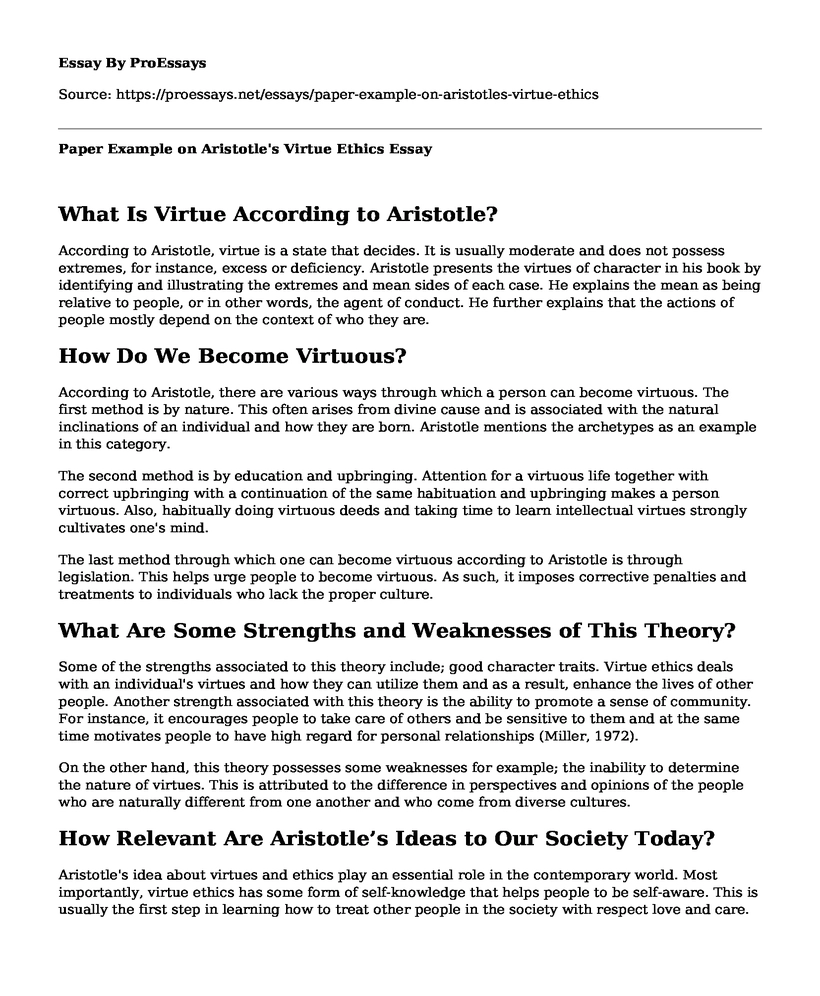What Is Virtue According to Aristotle?
According to Aristotle, virtue is a state that decides. It is usually moderate and does not possess extremes, for instance, excess or deficiency. Aristotle presents the virtues of character in his book by identifying and illustrating the extremes and mean sides of each case. He explains the mean as being relative to people, or in other words, the agent of conduct. He further explains that the actions of people mostly depend on the context of who they are.
How Do We Become Virtuous?
According to Aristotle, there are various ways through which a person can become virtuous. The first method is by nature. This often arises from divine cause and is associated with the natural inclinations of an individual and how they are born. Aristotle mentions the archetypes as an example in this category.
The second method is by education and upbringing. Attention for a virtuous life together with correct upbringing with a continuation of the same habituation and upbringing makes a person virtuous. Also, habitually doing virtuous deeds and taking time to learn intellectual virtues strongly cultivates one's mind.
The last method through which one can become virtuous according to Aristotle is through legislation. This helps urge people to become virtuous. As such, it imposes corrective penalties and treatments to individuals who lack the proper culture.
What Are Some Strengths and Weaknesses of This Theory?
Some of the strengths associated to this theory include; good character traits. Virtue ethics deals with an individual's virtues and how they can utilize them and as a result, enhance the lives of other people. Another strength associated with this theory is the ability to promote a sense of community. For instance, it encourages people to take care of others and be sensitive to them and at the same time motivates people to have high regard for personal relationships (Miller, 1972).
On the other hand, this theory possesses some weaknesses for example; the inability to determine the nature of virtues. This is attributed to the difference in perspectives and opinions of the people who are naturally different from one another and who come from diverse cultures.
How Relevant Are Aristotle’s Ideas to Our Society Today?
Aristotle's idea about virtues and ethics play an essential role in the contemporary world. Most importantly, virtue ethics has some form of self-knowledge that helps people to be self-aware. This is usually the first step in learning how to treat other people in the society with respect love and care.
References
Miller, E. F. (1972). Political Philosophy and Human Nature. The Personalist, 53(3), 209-221.
Cite this page
Paper Example on Aristotle's Virtue Ethics. (2022, Jun 30). Retrieved from https://proessays.net/essays/paper-example-on-aristotles-virtue-ethics
If you are the original author of this essay and no longer wish to have it published on the ProEssays website, please click below to request its removal:
- A Place Where I Belong: Germany. Personality Essay Example
- Digital Media Ethics and Technology on Climate Change Essay
- The Human Prospect Essay
- Essay Sample on Impact of Live Action and Animation on Morality and Reality
- Ethical Considerations for Adopting Electronic Records in Nursing Essay
- Deontology: The Science of Obligation and Ethicsc - Essay Sample
- Essay Example on Cultivating an Ethical Organization: Benefits of Establishing a Code of Ethics







